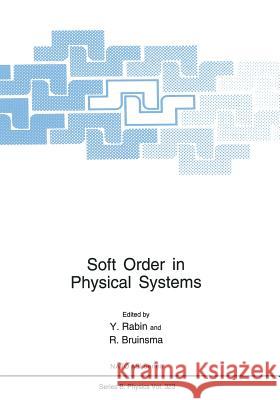Soft Order in Physical Systems » książka
Soft Order in Physical Systems
ISBN-13: 9781461360469 / Angielski / Miękka / 2012 / 236 str.
A humoristic view of the physics of soft matter, which nevertheless has a ring of truth to it, is that it is an ill-defined subject which deals with ill-condensed matter by ill-defined methods. Although, since the Nobel prize was awarded to Pierre-Gilles de Gennes, this subject can be no longer shrugged-away as "sludge physics" by the physics community, it is still not viewed universally as "main- stream" physics. While, at first glance, this may be considered as another example of inertia, a case of the "establishment" against the "newcomer," the roots of this prejudice are much deeper and can be traced back to Roger Bacon's conception about the objectivity of science. All of us would agree with the weaker form of this idea which simply says that the final results of our work should be phrased in an observer-independent way and be communicable to anybody who made the effort to learn this language. There exists, however, a stronger form of this idea according to which the above criteria of "objectivity" and "communicability" apply also to the process of scientific inquiry. The fact that major progress in the physics of soft matter was made in apparent violation of this approach, by applying intuition to problems which appeared to defy rigorous analysis, may explain why many physicists feel somewhat ill-at-ease with this subject.











